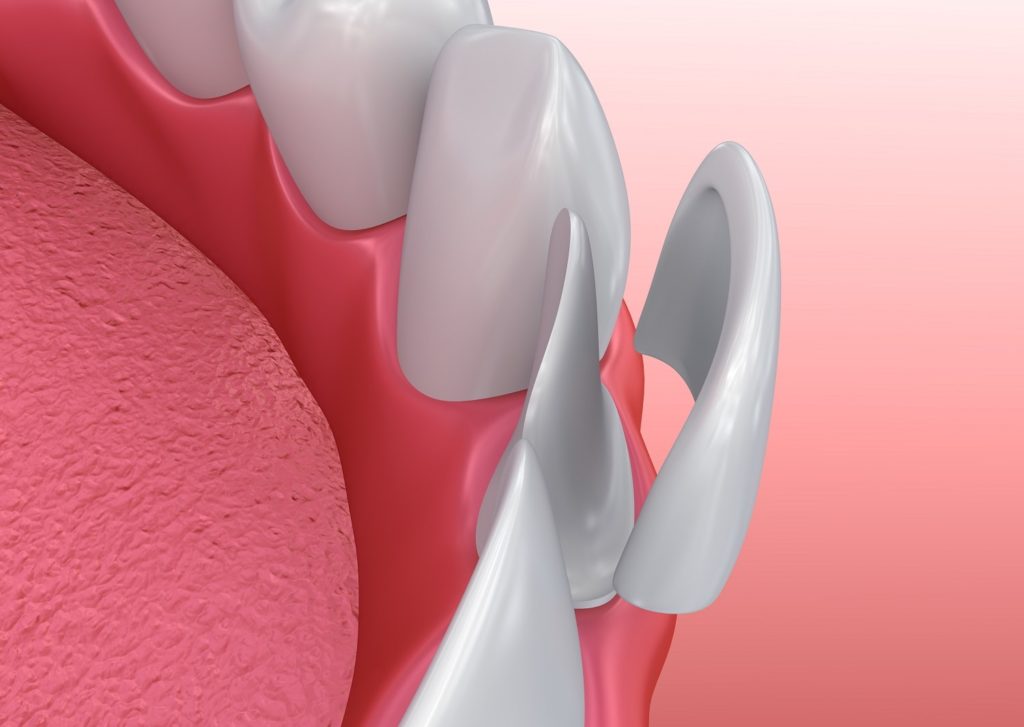While veneers are long lasting, they’re not designed to be permanent. If you have been fitted for veneers, you will eventually need to get them replaced. Ahead, learn more about the lifespan of your veneers.
How long do veneers usually last?
For most people, veneers last for 10 to 15 years. If you want to keep your veneers as long as possible, you have to maintain good oral hygiene habits. While most veneers are made of porcelain, they should be treated like regular teeth. They need to be brushed and flossed daily. You should also strive to avoid habits that can damage veneers.
What habits do I need to avoid?
The porcelain used to construct most veneers is durable and easy to clean. If you grind your teeth, however, you can damage the structure of the veneers. Habitual teeth grinding or jaw clenching, known as bruxism, can cause veneers to crack or chip. Many people only grind their teeth while they’re asleep, so you may be damaging your teeth unintentionally. At your next dentist appointment, ask your dentist whether your teeth show any indications of bruxism.
If you’re a habitual coffee drinker, you may want to cut back on your daily caffeine consumption. Porcelain is able to resist most stains, but certain beverages—such as coffee and red wine—can lead to discoloration. Constant consumption of these beverages may also stain the surrounding real teeth. Because the teeth and porcelain stain differently, however, there may be an obvious color demarcation between the where the real teeth stop and the veneers begin. Avoiding beverages isn’t just about avoiding unsightly discolorations, however. Some drinks can actually damage the structural integrity of the veneers. Sodas, for example, have a corrosive effect. Over time, soft drinks can damage the bond between the teeth and the veneers. When the damage is extensive, the veneer may become dislodged and fall off.
Chewing on hard objects like ice cubes and pen caps can also harm veneers. If you have a habit of chewing on your pens while deep in thought, find something else to satisfy your oral fixation. Try swapping your pen caps for chewing gum.
I lost a veneer—now what do I do?
If you’re dealing with damage to a veneer, the Houston Dental offices of Sinada Dental as soon as possible. Fixing a veneer is a lot like fitting them in the first place. Our dentists will take an impression of the veneer-free tooth, and then a veneer will be constructed according to these specifications. Your new veneer will then be bonded to the tooth.


